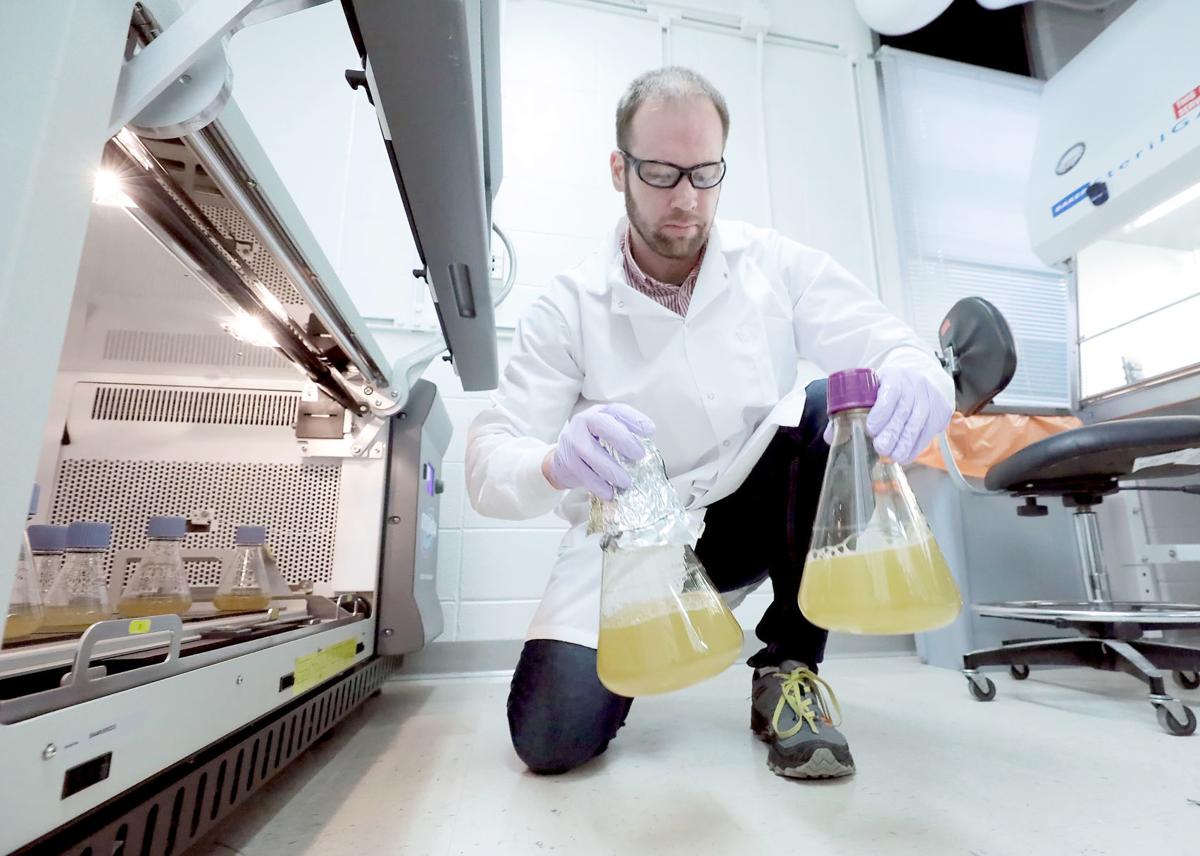23 Mar UW researchers study COVID-19 coronavirus

Robert Kirchdoerfer, an assistant professor of biochemistry at UW-Madison, uses flasks of moth cells to grow proteins from coronaviruses like the new pandemic strain. JOHN HART, STATE JOURNAL
In his UW-Madison lab, Adel Talaat developed an experimental vaccine to protect chickens from coronavirus. When the pandemic of a different strain arose in people late last year, Talaat used his technique to create a vaccine candidate for humans.
Talaat’s human vaccine, for which tests began last month in mice, is a long way from approval. Even a different vaccine for which a federally funded clinical trial in people started last week in Seattle won’t be available for at least a year, health officials say.
Talaat is one of several scientists at the university studying the new coronavirus to better understand how it harms people and to try to control it with treatments or vaccines. As the outbreak continues to grow in the U.S. and elsewhere, dramatically curbing daily activity and threatening hospital capacity, researchers around the world are racing to come up with medical measures to stop it.
At UW-Madison, some research has been halted or scaled back because the campus is nearly shut down to help stop the spread of the disease, known as COVID-19. But other studies continue, some involving a sample from the first person in Wisconsin to test positive, a Dane County resident who has recovered.



